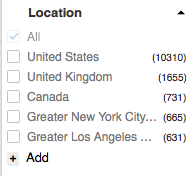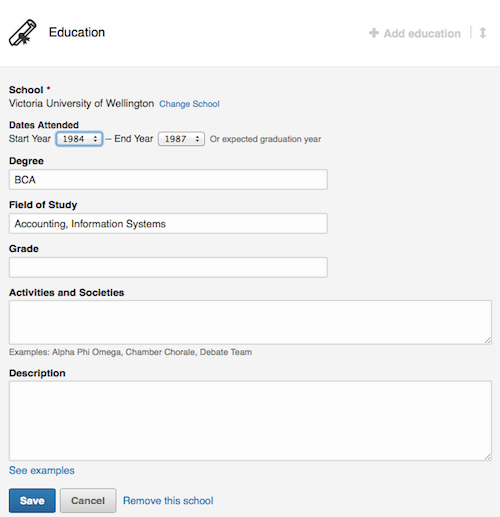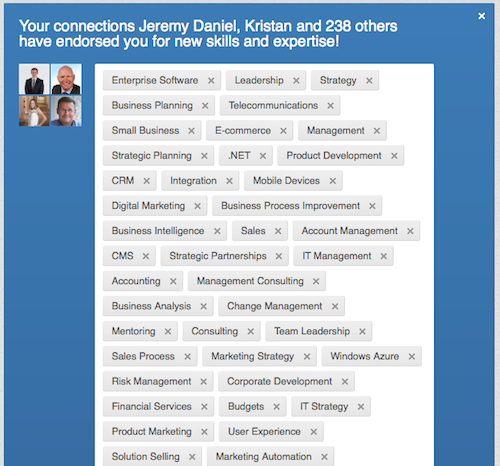Fixing LinkedIn
GUEST POST: LinkedIn has been the winner in business networking for many years. But over the last few years it's gone from an asset to a major pain.
GUEST POST: LinkedIn has been the winner in business networking for many years. But over the last few years it's gone from an asset to a major pain.
LinkedIn has been the winner in the business social network for many years. But over the last few years it’s gone from an asset to a major pain. I have to spend more and more time every few days dealing with LinkedIn messages and requests to connect.
LinkedIn is still the first place I go to see who people are, and because of its dominance most professionals seek to maintain a profile there.
I know that ‘if you’re not paying for it, you’re the product being sold’, but if I am the product being mined I think LinkedIn could create more value for its shareholders by looking after its users as well. To be blunt, its network management tools suck.
Rather than dwell on the problems, here is a list of improvements I’d love LinkedIn to make. In order that the right people see this list I’m going to mention Deep Nishar, Senior Vice President, Products and User Experience at LinkedIn. Hopefully this will pop up in his Google alerts and maybe he’ll even respond. Hi Deep *waves*.
Establish a new circle of ‘People I don’t know, but should meet some day’
I get a lot of people wanting to connect to me. If I connect then people assume I do actually know them and the referral network is broken. There should be a circle of people I actually know, and a circle of people I should know but haven’t actually met yet.
If I can protect the circle of people I actually know then my referral is much more powerful.
When travelling it would be great to filter by my planned trip location to see ‘people I don’t know, but should meet someday’ so I can get to know them. I have hundreds of people in my network that I’d love the opportunity to meet if I have a few spare hours while travelling. That would make trips much more effective and unlock countless opportunities.

Be truly global
LinkedIn is still very US centric. I’ve been a LinkedIn member since the beginning. I live in New Zealand and this is the list of locations that I see on each search.
It would be great if LinkedIn remembered where I was, where I go and gave me some better geographic tools that allowed me to see where my network is and plan to meet people as I travel.
Own Conferences
I meet hundreds of people at conferences. The modern conference starts months before the event and relationships can continue for years after. Being able to quickly create a conference, get people to join that group and making it super easy to see others at the event would clean up a big part of my network.
Wouldn’t it be great to see a timeline view of your network so you can see the events you attended over time and the people you met at those events. It would make it much easier to follow up on opportunities when you’re doing your post-event follow-up.
Alumni
I’m involved with a number of schools and universities that want to recapture their relationship with alumni for community building, inspiration and fund raising purposes. Making it super easy for schools, colleges, universities and other institutions to create yearly groups and even provide an online certification of attainments could see a massive network effect.
Each institution should have a set of tools on LinkedIn that allows them to manage their presence. Potentially APIs would allow them to have current and former students log into their page or own website and link their LinkedIn Profile to their Academic register. This would provide massive benefit to the institution as it creates a reason for Alumni to connect. Professionals would be motivated to do it as their achievements would be validated.
In other words create the other side of this. Make this a hard connection to the Institution.

People love badges. Give the institutions tools to manage their Alumini and I’m sure you’ll see a powerful network effect.
Network curation
It’s far too hard to remove or degrade people in your network. With a set of curation tools the quality of networks can be managed, which must have benefit to LinkedIn.
When accepting requests I want the criteria for a contact request to be strict. They have to accurately link so the contact can be correctly placed in my network and I want to set those attributes. I also want to be able to process 20 connections at a time very effectively. Right now I have to dive into each one to see who they are. A better design that allowed me to see at a glance how people know me would help. I’d like to not see anyone who tries to connect without a custom message. That’s just contact spam.
From time to time, maybe once a year I may want to move people around as they move in and out of my close network. Google is doing a much better job with circles but this could be so much better and more useful.
Be classy
Please LinkedIn stop pushing dumb stuff into my stream. What am I supposed to do with this …

What benefit does this give me? You must have also done something with start date anniversaries because now I’m getting spammed on that. Please just stop these usage initiatives that are quantity rather than quality. Get your network working.
Design your workflows
LinkedIn now takes me several minutes a day. It’s become painful. Seeing how people use LinkedIn would reveal some obvious workflow improvements that could make LinkedIn a delight. Some of the recent designs have been shockers.

Sure enough, over the weekend I was checking out someone that emailed me and rather than typing in the Search box, I typed their name in the ‘Share an update…” box. Not just embarrassing for all but you can imagine how much damage that could incur for multiple parties if you broadcast a potential candidate to the world.
Wrap up
I’d be interested in anyone else’s suggestions to make LinkedIn better. I don’t see any realistic competition coming anytime soon for LinkedIn so I hope they see these suggestions and make LinkedIn a delightful experience. Even if we are ultimately the product.
Rod Drury is CEO of Xero.